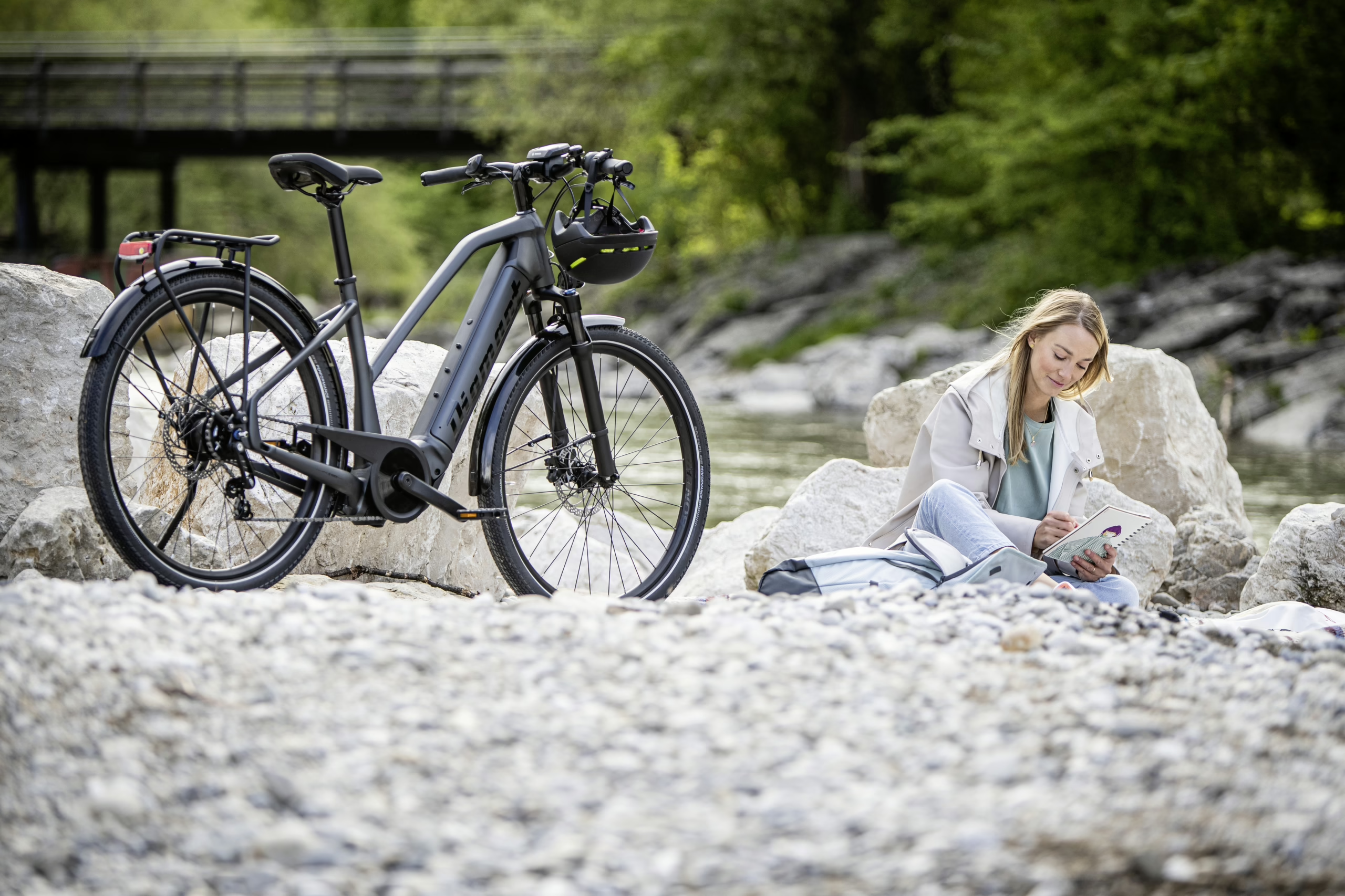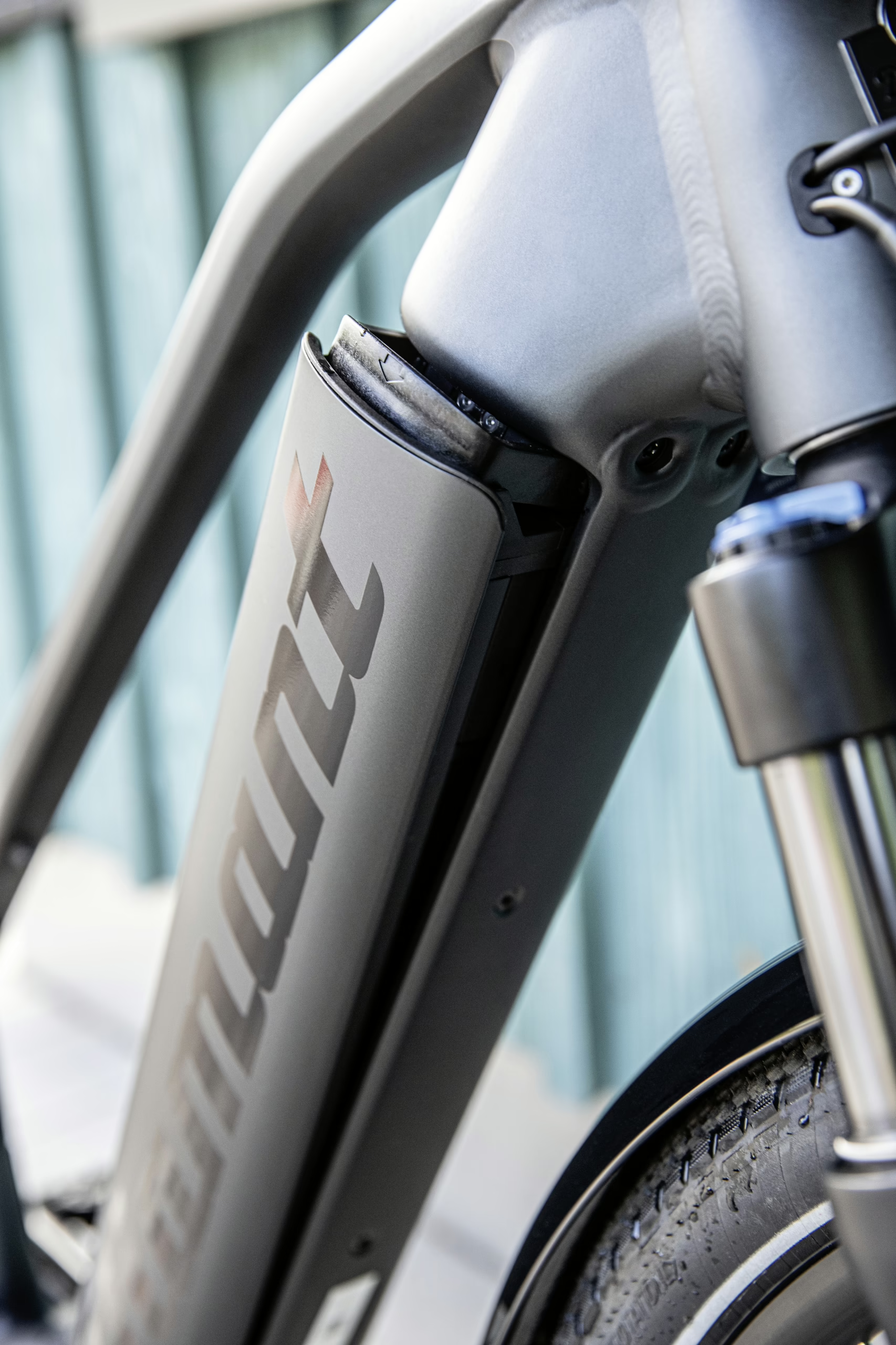
E-bike battery manufacturing: How sustainable is a bike battery?
As we rely on e-bike systems from market leader Bosch for our e-bikes, we spoke to Armin Harttig, Head of Sales and Service at Bosch eBike Systems. In this interview, we take a closer look at the production of the e-bike battery.
How sustainable are e-bike batteries?
Armin Harttig, sustainability begins with the development and manufacture of a battery. What do you pay special attention to?
Riding an e-bike helps to reduce traffic jam, noise and exhaust fumes. In order to save even more emissions, Bosch eBike Systems already incorporates sustainability criteria into product development. The goal of conserving resources is applied to all processes – from social and environmental responsibility along the supply chain to maximising sustainable production and increasing recycling efficiency in the interests of a sustainable circular economy. As part of the Bosch Group, whose locations have been climate-neutral since 2020, the Bosch eBike Systems division has also anchored sustainability as a central component of its strategy.
How are batteries manufactured and do the battery cells in Bosch e-bike batteries contain cobalt?
Bosch eBike Systems procures the battery cells from renowned cell manufacturers; the batteries are then manufactured to the highest quality standards in a Bosch factory. Current lithium-ion cells require cobalt as a material for the cathode. However, we work closely with our partners to save on valuable raw materials. Together with our suppliers, we have already been able to reduce the cobalt content in the cathode of e-bike battery cells by around 65 percent since 2013.
What other measures is Bosch taking to improve the sustainability of e-bike batteries?
As already explained using the example of cobalt, Bosch eBike Systems is working to further reduce the proportion of valuable raw materials. This includes a supply chain that is as transparent as possible, which enables these raw materials to be traced, and close cooperation with battery cell suppliers. In 2021, you were asked for details of the supply chain up to the procurement of raw materials in order to discover additional sustainability potential. These queries are now being extended to other e-bike system components – such as the drive system or the control unit. We are also working with our partners and suppliers to convert their production to green energy or the use of secondary raw materials so that the footprint of the products supplied, such as an aluminium housing, can be further reduced.

What does the life cycle of e-bike components look like, especially when considering the battery?
Like all Bosch eBike Systems components, the batteries are also designed for a long service life. This is already taken into account during the development process and ensured during production through high quality standards and extensive testing. When driving, the intelligent electronic Bosch Battery Management System (BMS) protects the battery from excessive temperatures, overloading and deep discharge. The BMS checks each individual cell, making the battery even more durable. But every lithium-ion battery eventually reaches the end of its service life. It is then important to recycle them. In this way, raw materials such as aluminium, copper, cobalt or nickel can be recovered with a high recycling efficiency and used for new products.
You may also be interested in this:
Do you have further questions about bike batteries? We recommend you take a look at our large e-bike battery FAQ. Here you will find information on range, care, disposal and much more.
So Bosch e-bike batteries can be recycled?
Yes, they can and should. That is why we support new and sustainable recycling methods. We also voluntarily assume the recycling obligations and therefore also the costs in all sales countries where this is legally possible through local service partners. In countries where recycling solutions are not yet available or not good enough, Bosch liaises closely with partners and provides support for pilot projects or the creation of industry solutions. The aim is to work with the manufacturers to enable as many users of a Bosch eBike system as possible to find a recycling solution in their country.
How many batteries are effectively recycled?
In countries with an existing take-back system – in Germany, for example, the Gemeinsame Rücknahmesystem Batterien (GRS) – all rechargeable batteries handed in to the retailer are recycled. Professional recycling conserves resources and returns valuable raw materials to the material cycle. Every customer is therefore called upon to return the battery at the end of its service life and thus support a circular economy. This is free of charge for the customer – the costs are borne by the industry. Bosch eBike Systems expressly advises against attempting to repair defective batteries yourself: Lithium-ion batteries are complex systems with a high energy density, and improper tampering poses a safety risk.